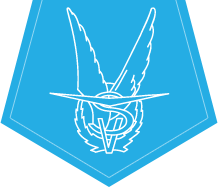Joint Interdisciplinary Project
For the official Joint Interdisciplinary Project website, visit https://www.jointinterdisciplinaryproject.nl/
Adventurous future engineering
Adventurous to seek an integrated learning experience? To develop both technical knowledge and ‘generic’ skills (communication, teamwork, ethics, sustainability etc.)? Are you generous to share your experiences and motivated to inspire your fellow students with your own disciplinary knowledge. Curious about the challenges in interdisciplinary business innovation development in a real-life testing environment. Do you want to surprise professionals in the world of engineering with innovative, unexpected, transcending insights? Apply for the new curriculum pilot “Joint Interdisciplinary Project”.
About the project
Part of the MSc curriculum: for second years master students of all master tracks of the 5 participating faculties.
AE Aerospace Engineering
CEG Civil Engineering and Geosciences
3mE Mechanical, Maritime and Materials Engineering
AS Applied Sciences- Chemical Engineering
TPM Technology, Policy and Management
Next project starts September 2019
Joint Interdisciplinary Project (15 ECTS)
September-November fulltime (Q1)
The pilot took place in September 2018. This was very well received and has led to an exciting new chapter of JIP. The pilot of 2018 included ± five interdisciplinary project teams of each 4 to 5 selected MSc students. The projects focused on integrated design or research assignments, in addition to topics such as value adding, societal acceptance and engineering ethics. The following elements are key for this project:
- Working closely together with companies in business innovation ‘in the niche’ on a business case to create innovative impact.
- Broadening yourself out of your field of expertise and sharing your disciplinary knowledge, deepening your analytic and creative skills.
- Realizing change and impact. Not afraid of getting a taste of success and failure to become resilient in the face of obstacles.
Submit to prepare yourself for a future professional engineering environment in a rapidly changing world with complex global challenges and professions which even don’t exist yet.
Students will be selected on basis of motivation, study progression and recommendation.
Intended learning goals:
- Cognitive abilities attributable to interdisciplinary thinking
- Scientific and intellectual development
- Research and design capabilities
- Collaboration and communication in an interdisciplinary team
- Self-adjustment and reflection capabilities
Information for Aerospace Engineering students
Application for JIP is open for master students from all AE Master tracks. The Joint Industry Project can be followed instead of the internship. The project can also be done as 15ECTS extracurricular if you already have an internship. For Honours students the project is also available for their individual HPM program.
Eligibility:
- You have almost completed the first year of the master’s degree programme and will enroll in your second year of master’s degree programme at TU Delft in September 2019
- The students will be selected by the director of her/his master track
Application Documents:
- A motivation for participating in the Joint Interdisciplinary Project
- Top 3 preferred projects
- Curriculum Vitae
- Grade transcript
- (Optional: letter of recommendation of a supervising TU Delft professor)
The point of contact for Aerospace Engineering students is Pippa Vossen of the VSV ‘Leonardo da Vinci’. Email: vsv@tudelft.nl. Phone: 015 278 3470. Send an email if you would like to apply or have any questions, ,or directly contact contact@JointInterdisciplinaryProject.nl.
From the Aerospace Engineering faculty staff, Aldert Kamp, Stephanie Cazaux and Julien van Campen are very closely involved in the project.
Context: interdisciplinary teamwork
Currently there is this increasing importance of interdisciplinary thinking in the engineering profession . Some experts: Most graduates do not become discipline-based academics. In order to come up with valuable breakthroughs in the future, engineers must be able to combine specialist mono-disciplines, cross borders and respect other people’s views. This calls for expert thinking, but even more for collaboration and multi- and inter- disciplinary thinking that cross the borders of engineering. High-tech enterprises increasingly look for engineers who can develop the outline for an integral design, keep the overview and keep an eye on system design consistency. These system architects and integrators not only need solid fundamental knowledge, but must understand “the big picture”, have a sense of the multidisciplinary problem domain and a good awareness of the business side and human context. They must be able to reduce the complexity, uncertainty and ambiguity to workable concepts, and create value for the enterprise and customer.”
The new TU Delft Vision on Education reads “...we aim to strengthen education with multi- and interdisciplinary programmes”. The chapter Students and Education of the TU Delft Strategic Framework 2018-2024 reads “We prepare students to contribute to solving societal challenges by providing students with a solid grounding in interdisciplinary skills, sustainability and entrepreneurial thinking. To this end we will increase the elective space in MSc programmes”, “Multi- or Interdisciplinary teamwork as an option for the MSc thesis within the Faculty or interfaculty” and “Personalised learning paths – freedom of choice”.
